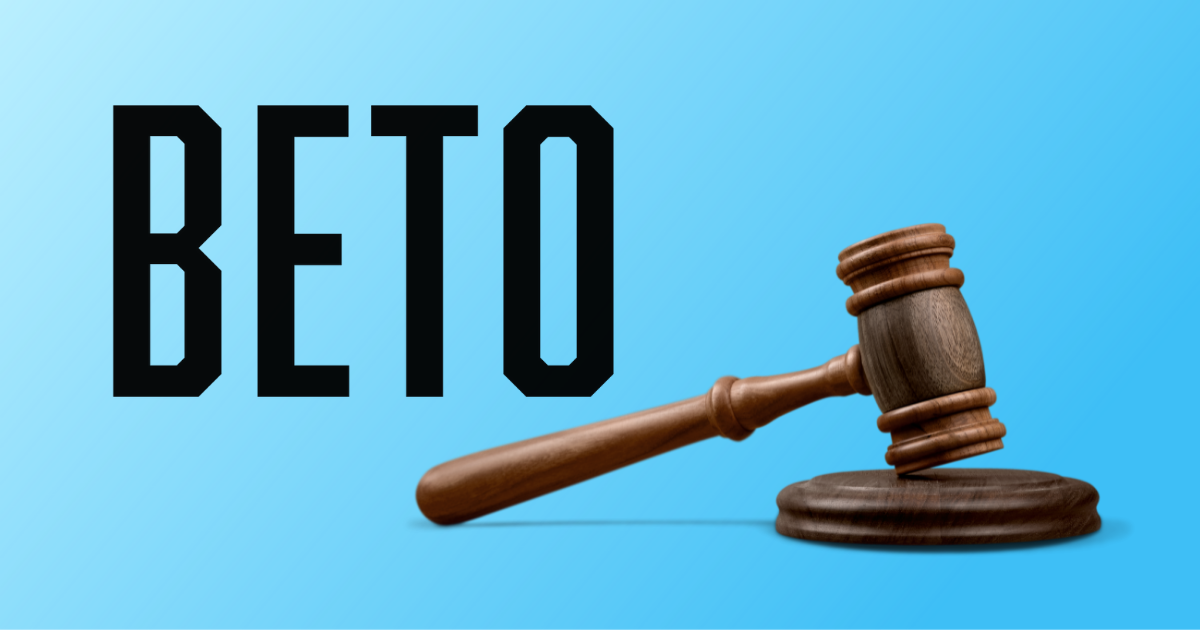On Monday, Democratic gubernatorial candidate Beto O’Rourke made headlines when he announced at a campaign event that a billionaire was going to file a lawsuit against him. Sure enough, a defamation lawsuit against O’Rourke was filed in San Saba County later that day.
The man bringing the lawsuit against O’Rourke is Kelcy Warren, the co-founder and current Chairman of the Board of Directors at Energy Transfer Partners, one of the largest oil and gas companies in the world. His lawsuit is seeking damages against O’Rourke for defamation, slander, and libel.
In the lawsuit, Warren alleges that “O’Rourke began a relentless and malicious attack on Warren by accusing him of serious crimes including extortion, bribery, and corrupt influence, simply because Warren made a campaign contribution to Governor Abbott in June 2021 and is the former CEO of Energy Transfer.”
Warren is one of Abbott’s biggest donors, and a major fixture in Republican circles. He even hosted Donald Trump when he came to Dallas in 2020. According to reports, Energy Transfer raked in over $2.4 billion after Winter Storm Uri, which left millions of Texans without power and electricity for days last year. Shortly after that windfall, Warren cut a check to Governor Greg Abbott’s reelection campaign for $1 million.
On numerous occasions, O’Rourke has brought up that contribution, and how it reflects apparent corruption from Abbott. On the one-year anniversary of Uri, O’Rourke kicked into high gear his campaign against Abbott for those grid failures, and the inaction afterwards. The lawsuit references several social media posts, including one where O’Rourke mentions Warren specifically.
While O’Rourke’s allegations against Warren are serious, there are some high legal hurdles to prove defamation. The Signal spoke with attorney Eliot Shavin, who is an adjunct clinical professor and assistant director at the Dedman School of Law at Southern Methodist University (SMU) about those thresholds.
Shavin first stressed that defamation is a very “broad category,” which includes slander (something said) and libel (something written). He also noted that many allegations of defamation simply can’t survive because of the First Amendment.
“There have to be very clear misstatements of fact, if there are merely opinions, generally speaking, they are not going to be actionable as defamation,” said Shavin. The standard of the law applies even further to a public official, according to Shavin. “It’s not enough just to prove it’s false or defamatory, it’s got to be proven that it was made with actual malice.”
In order to prove defamation, a plaintiff would have to prove the defendant had concrete knowledge before making a statement knowing it was false, or that it was done with reckless disregard. “Making hyperbole, or exaggeration, or even accusing a public official of corruption, there’s case law that shows that that’s not enough to make out a case of slander or defamation,” said Shavin.
Shavin pointed to a Texas case to describe the very high bar for meeting defamation: Carr v. Brasher. In that case, the Texas Supreme Court denied rehearing a case from Lynn Brasher, the former mayor of South Houston, against his election opponent (and new mayor) Al Thiel and Walter Carr, a campaign aide who authored campaign brochures. Brasher alleged that Carr committed libel for some of those campaign brochures for an election in 1985. Some of the allegations raised in those brochures included “payoffs” Brasher made to bookkeepers. The defense for Thiel and Carr rested on the absence of “malice” in the accusation.
As for what happens next for O’Rourke, that depends on the judge hearing Warren’s case. Shavin, though, expects O’Rourke’s lawyers will quickly file a motion to dismiss the lawsuit.
But in a day and age where legal precedents are rapidly eroding, the wait game continues.
A longtime writer and journalist, Jessica was thrilled to join the Texas Signal where she could utilize her unique perspective on politics and culture. As the Features and Opinion Editor, she is responsible for coordinating editorials and segments from diverse authors. She is also the host of the podcast the Tex Mix, as well as the co-host for the weekly SignalCast. Jessica attended Harvard College, is a onetime fitness blogger, and has now transitioned to recreational runner (for which her joints are thankful).





